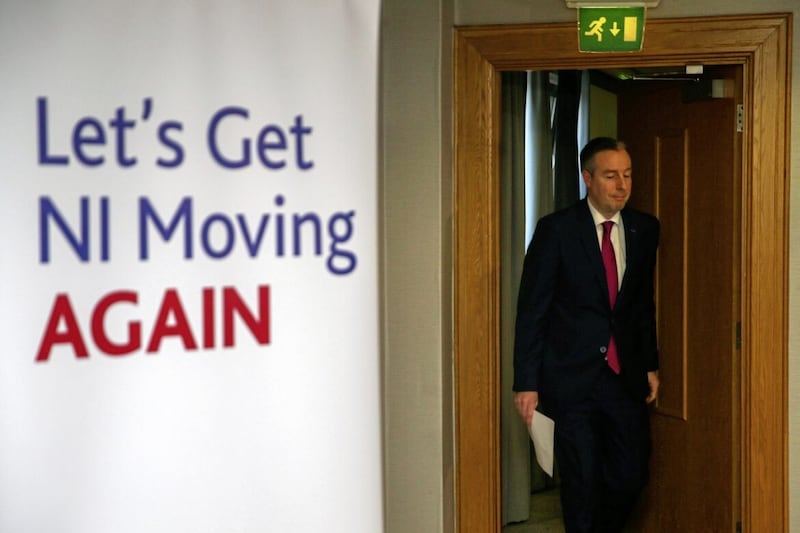As the DUP has only had two leaders in its 44-year history, Ian Paisley and Peter Robinson, it was quite extraordinary that, in the course of his lengthy farewell speech at the weekend, the latter felt unable to make even a single reference to his late predecessor.
Although the outgoing first minister told his audience that he had `lived in the DUP from the day of its birth', and offered a detailed account of his role in its development, he managed to avoid any mention of his former mentor and the politician whose name was inextricably linked with the party for almost its entire history.
It was by no means the only striking omission in Mr Robinson's final address to his party conference, but it could only be regarded as a calculated snub to the memory of the dominant figure who founded the DUP and remained at its head for the next 37 years before becoming Lord Bannside.
Mr Robinson preferred to compare himself to himself to a former Ulster Unionist prime minister in pointing out that he had held the top Stormont post for longer than anyone since Lord Brookeborough, who was in office from 1943 to 1963.
By accident or design, Mr Robinson did not get round to noting that the former Basil Brooke was best remembered for declaring that Protestants who employed Catholics were `traitors to Ulster' and his policy was `to have not one about my place'.
Circumstances have changed radically since Brookeborough's day, and Mr Robinson has only remained in joint control of the power-sharing administration since 2008 with the consent of his equal, Martin McGuinness of the largest nationalist party, Sinn Fein.
Unfortunately, just as the DUP leader refused to acknowledge the contribution to his party of Mr Paisley, he also declined on Saturday as the first minister in a cross-community government to offer any form of vision to nationalists.
Unionists and nationalists should both be prepared to accept their responsibilities for creating the huge difficulties on a range of fronts which have surfaced over recent years.
It goes without saying that Mr Robinson is a politician of many gifts, and has demonstrated a striking tactical ability to outmanoeuvre his internal and external unionist opponents throughout his long career.
However, on the basis of his valedictory message to the DUP, he had very little to offer to the cause of reconciliation in our sadly divided society and he was plainly not interested in healing the blatant splits in his own party or the wider unionist tradition
Mr Robinson deserves good wishes as he moves towards his retirement after his recent period of ill health and there will be a fervent hope that, on all sides in Parliament Buildings, a climate of wider progress may now be possible







